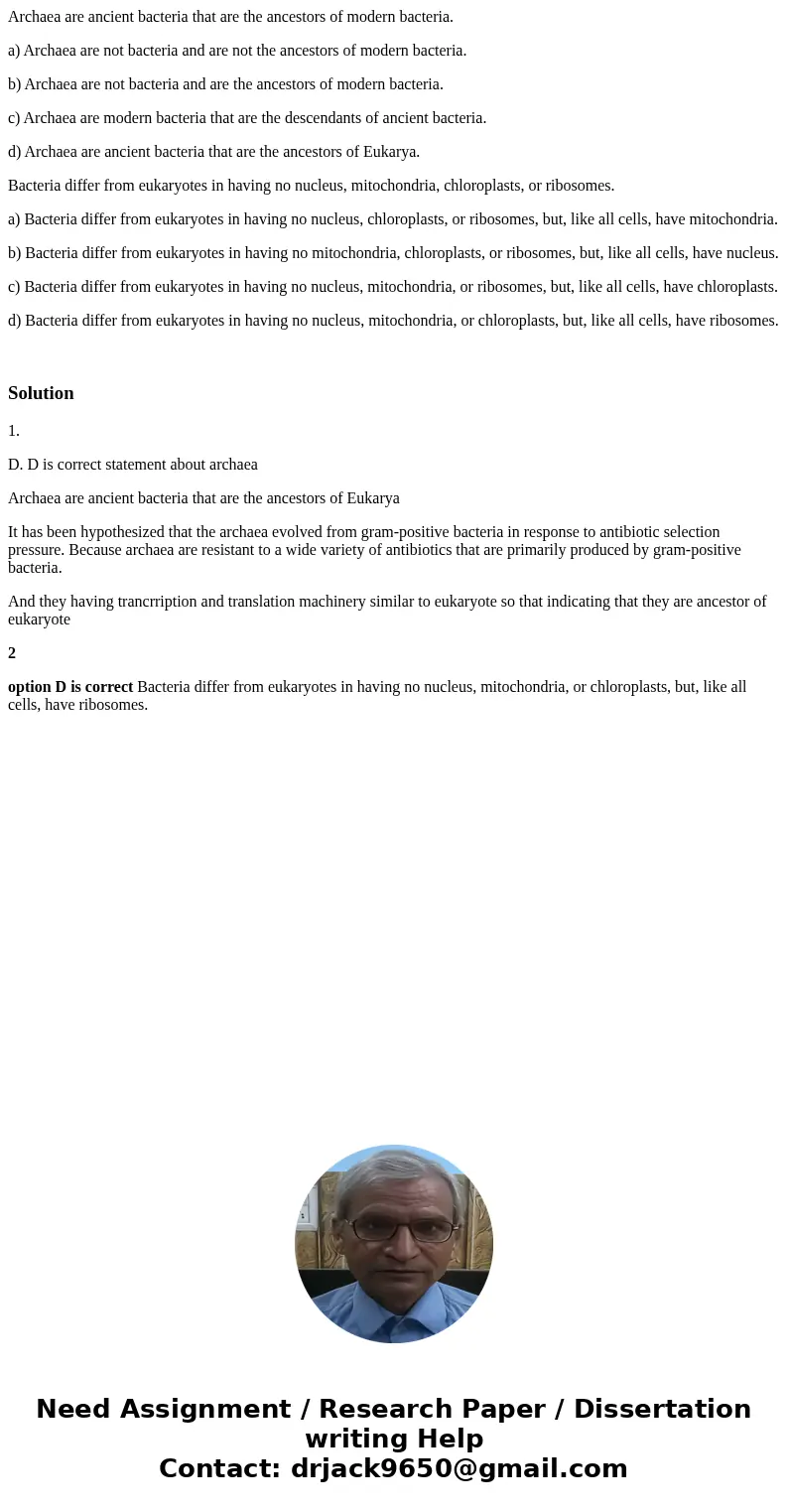Archaea are ancient bacteria that are the ancestors of moder
Archaea are ancient bacteria that are the ancestors of modern bacteria.
a) Archaea are not bacteria and are not the ancestors of modern bacteria.
b) Archaea are not bacteria and are the ancestors of modern bacteria.
c) Archaea are modern bacteria that are the descendants of ancient bacteria.
d) Archaea are ancient bacteria that are the ancestors of Eukarya.
Bacteria differ from eukaryotes in having no nucleus, mitochondria, chloroplasts, or ribosomes.
a) Bacteria differ from eukaryotes in having no nucleus, chloroplasts, or ribosomes, but, like all cells, have mitochondria.
b) Bacteria differ from eukaryotes in having no mitochondria, chloroplasts, or ribosomes, but, like all cells, have nucleus.
c) Bacteria differ from eukaryotes in having no nucleus, mitochondria, or ribosomes, but, like all cells, have chloroplasts.
d) Bacteria differ from eukaryotes in having no nucleus, mitochondria, or chloroplasts, but, like all cells, have ribosomes.
Solution
1.
D. D is correct statement about archaea
Archaea are ancient bacteria that are the ancestors of Eukarya
It has been hypothesized that the archaea evolved from gram-positive bacteria in response to antibiotic selection pressure. Because archaea are resistant to a wide variety of antibiotics that are primarily produced by gram-positive bacteria.
And they having trancrription and translation machinery similar to eukaryote so that indicating that they are ancestor of eukaryote
2
option D is correct Bacteria differ from eukaryotes in having no nucleus, mitochondria, or chloroplasts, but, like all cells, have ribosomes.

 Homework Sourse
Homework Sourse